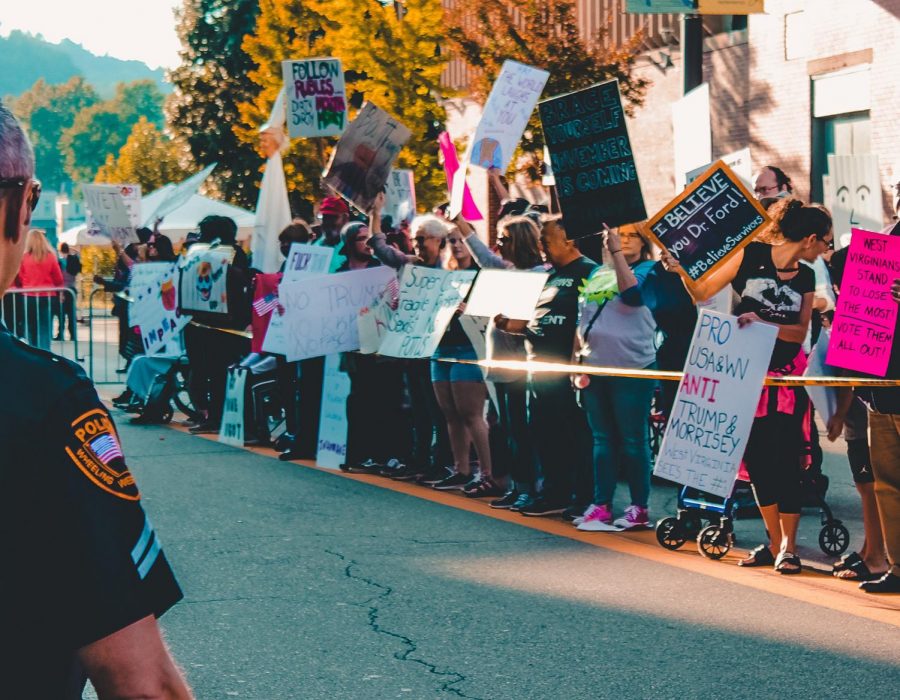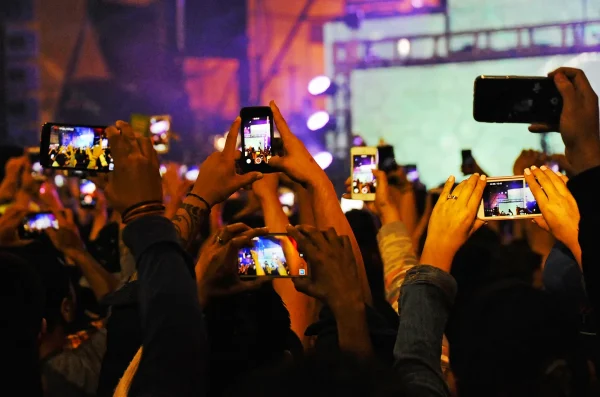Politics aren’t black and white
Opinion Columnist Abigail Bennethum draws attention to the idea that politics are not always black and white, and encourages people to be more accepting of other’s views.
Apr 18, 2019
Living in a world where political activism has been at its peak has caused a lot of young minds to start thinking about what political party they may identify with and vote for when they are of age.
A lot of controversial political topics have surfaced over the past couple of years, such as gun control, the debate between pro-life or pro-choice individuals, the confirmation of Supreme Court Justice Brett Kavanaugh and the presidential election of Donald Trump to name a few. Those are some pretty big issues that can impact somebody’s decision to either lean towards the left or right in our binary political system.
Now, before I continue, I want to clarify a couple of things. I firmly believe having more politically educated people can only be beneficial to society. Not just being educated, but feeling so strong in your values that you stand up and make your voice heard. Voting and being an active citizen in society is one of the most valuable things you can do as an American.
One of the typical misconceptions plenty of people don’t realize is that politics aren’t black and white. It is not just Democrat and Republican. People find themselves so caught up in titles and what the other party is opposed to. It instantly turns into a battle of he said, she said and making big decisions off of someone’s demographic when it should be based on their merit and values. This is not only relevant during debates and other elections, but on social media as well. People are harassing one another about what they believe in, and then getting angry about somebody doing the same to them.
This existing divide between people is breaking not only our community down, but people as a whole. Being politically active in this day and age has changed greatly from when our parents and grandparents were our age. Not only in the way we get our message across, but the content in which we focus our messages. It has become a game of selective perception among not only our peers, but actual candidates that were running both in the past and present.
Personally, not knowing which party I identified with growing up has given me a perspective I don’t think many people have. College is where I decided I identified the most with right-wing ideology. I say most because there are things that myself and probably a lot of other students agree with that aren’t typically aligned with the basic values of whichever political party they stand with.
Growing up with various family members that held very influential political views from both sides has given me the chance to ponder both.
I concluded that no person is 100 percent conservative or liberal. In my opinion, I think that is our answer right there. Not one person can solve all the problems of society from affiliating with just one political view. It takes a team effort and constantly going against each other won’t solve anything.
As I walk around campus and in the classroom, I recognize others distinctively try to dominate with their views over other persons. So, I ask the question: Why do people think their political opinions are superior over another’s? At the end of the day, I think students and other growing minds forget that opinions are just opinions.
We all need to end the game of selective perception and focus on the content of the person, what they value, and how that can be beneficial to society as a whole. Looking beyond the immediate gratification of proving one person is right over another to come together and make the right decision for our country.
















